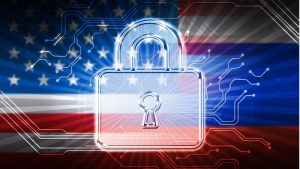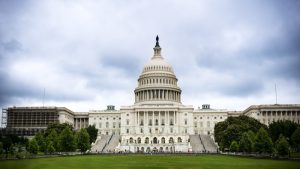Following the recent ransomware attack on Colonial Pipeline Company, Rep. Elissa Slotkin, D-Mich., proposed a bill last week that would require the Cybersecurity and Infrastructure Security Agency (CISA) to establish a National Cyber Exercise Program to test the United States’ cyber readiness.
Representatives on the House Homeland Security Committee reintroduced legislation May 12 that would create a $500 million-per-year Department of Homeland Security (DHS) grant program to help incentivize state and local governments (SLGs) to improve cybersecurity funding.
Reps. Andy Kim, D-N.J., and Joe Wilson, R-S.C., introduced bipartisan legislation on May 4 that would strengthen states’ cybersecurity readiness and allow governors to deploy their state’s National Guard to respond to cybersecurity threats.
Members of a key House cybersecurity subcommittee and a panel of expert witnesses agreed at a May 5 hearing on the pressing need to disrupt ransomware-driven cyber attacks, and aired a variety of strategies to more toward that goal.
The Cybersecurity and Infrastructure Security Agency (CISA) released a new graphic novel on National Superhero Day, but its superhero might not possess your typical superpowers. The fictional story Bug Bytes intends to educate the public on the dangers of dis- and misinformation campaigns, with cybersecurity and journalism skills saving the day.
Numerous tech-related issues were front and center in President Biden’s address to a joint session of Congress on Wednesday night, as he delivered pitches backing up his infrastructure-themed American Jobs Plan issued in late March, the American Families Plan unveiled this week, and a preliminary Fiscal Year 2022 budget wish-list made public on April 9.
The Cybersecurity and Infrastructure Security Agency (CISA) announced that .gov top-level domains will be available at no cost for qualifying organizations beginning immediately – a move that should help on the cybersecurity front especially for smaller governmental entities.
The Federal Communications Commission (FCC) announced Friday it will re-establish the Communications Security, Reliability, and Interoperability Council (CSRIC), with a focus on “improving 5G network security.”
In a recent report, the National Governors Association (NGA) detailed what practices governors can follow to establish effective cybersecurity governance bodies that support critical infrastructure cybersecurity, with a specific focus on the energy sector.
Reps. Doris Matsui, D-Calif., and Jim Langevin, D-R.I., urged Education Secretary Miguel Cardona in an April 1 letter to address the growing cybersecurity threat facing K-12 schools by issuing guidance that will give K-12 schools more confidence in making investments in increased cybersecurity measures.













